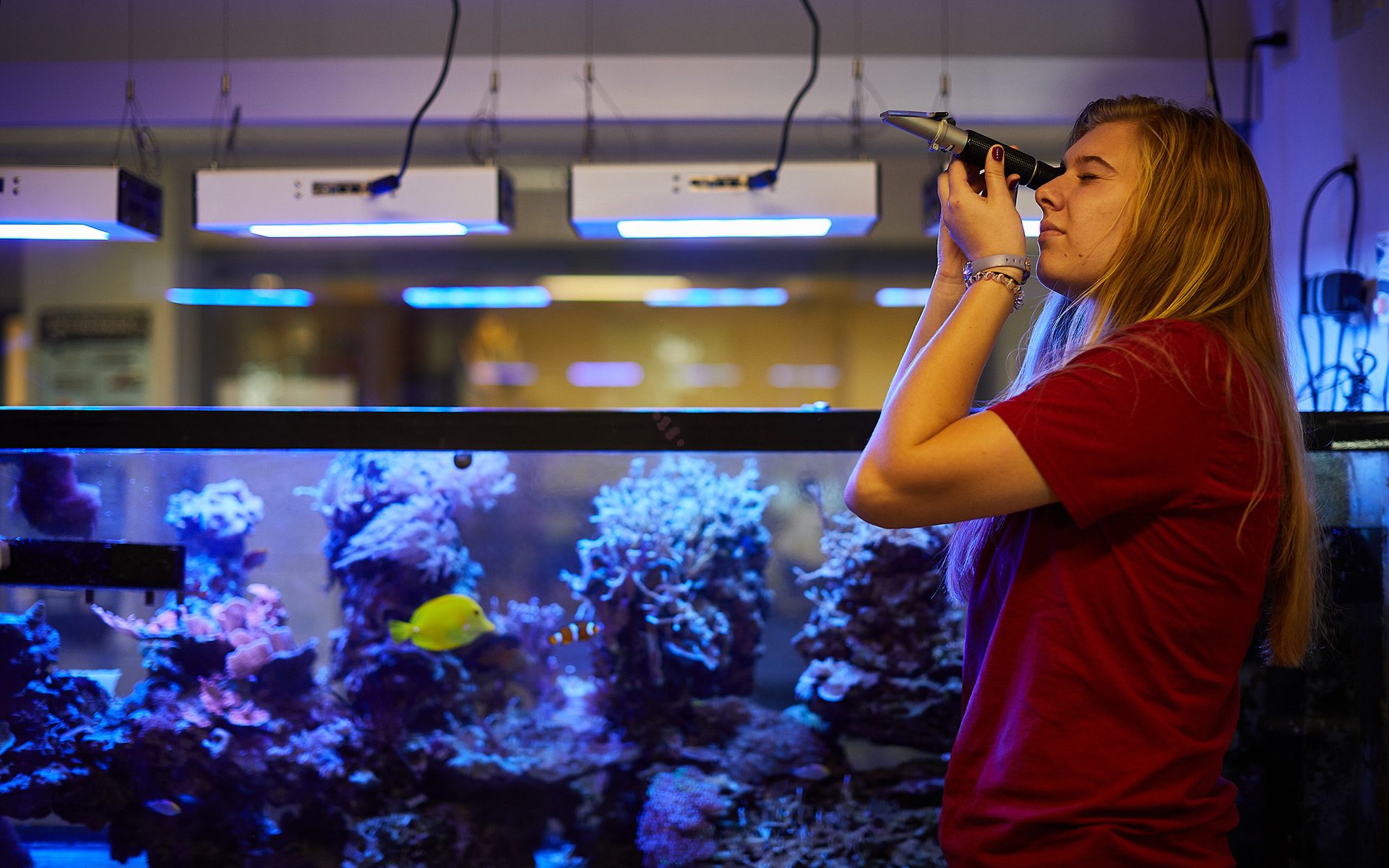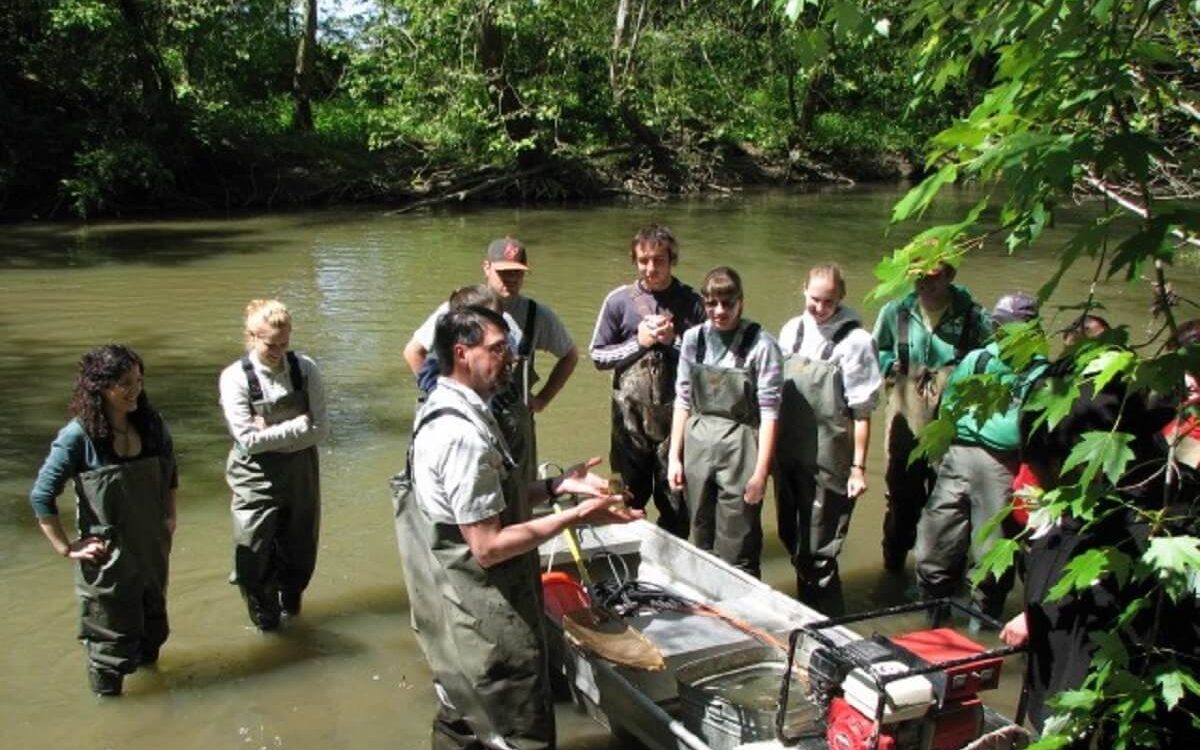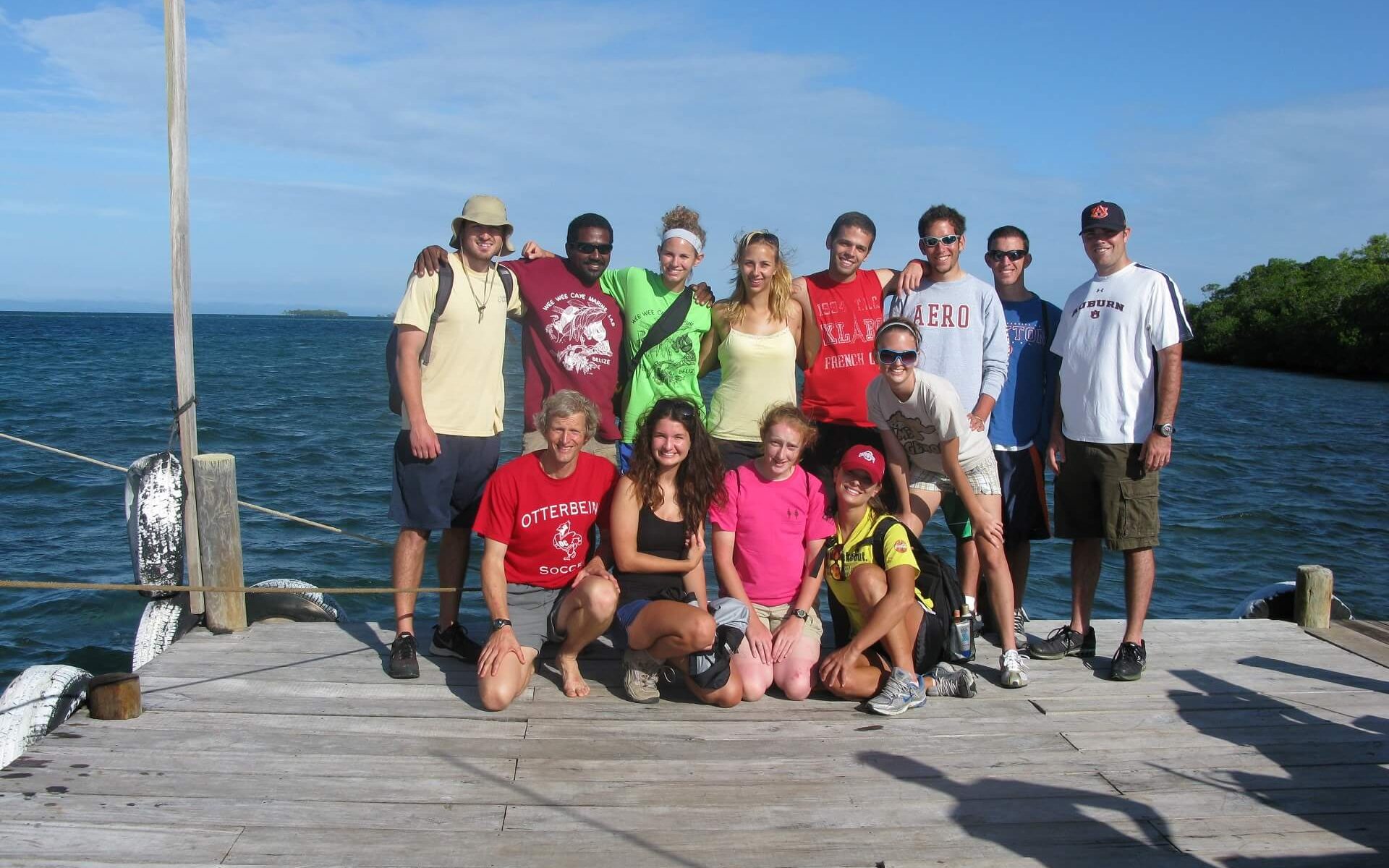Aquarium Science Program, Zoo and Conservation Science Major
Otterbein’s Aquarium Science Program is the newest part of our innovative Zoo and Conservation Science Major. It is designed for students who love aquatic organisms and know that the effort to keep tanks thriving is well worth the reward.
- Aquarium students will get hands-on experience and develop skills in marine and freshwater biology, water quality, and aquatic life support.
- Their skills will also prepare them to work at animal care facilities such as zoos and aquariums. Zoos need aquarium workers to keep up the tanks of penguins, polar bears, pond turtles, and more.
- As part of the Zoo and Conservation Science Major, Aquarium experiences also prepare students for graduate and professional studies, for work with conservation organizations, and jobs in the biological sciences.
- Aquarium expertise prepares students for careers in the $1.1 billion/year industry of hobby aquariums.
Follow OtterbeinSTEM on:
The Foundations of Otterbein's Aquarium Science Curriculum
Our curriculum focuses on four important aspects of Aquarium Science: the biology of marine and freshwater organisms, water quality, life support, and professional experiences.
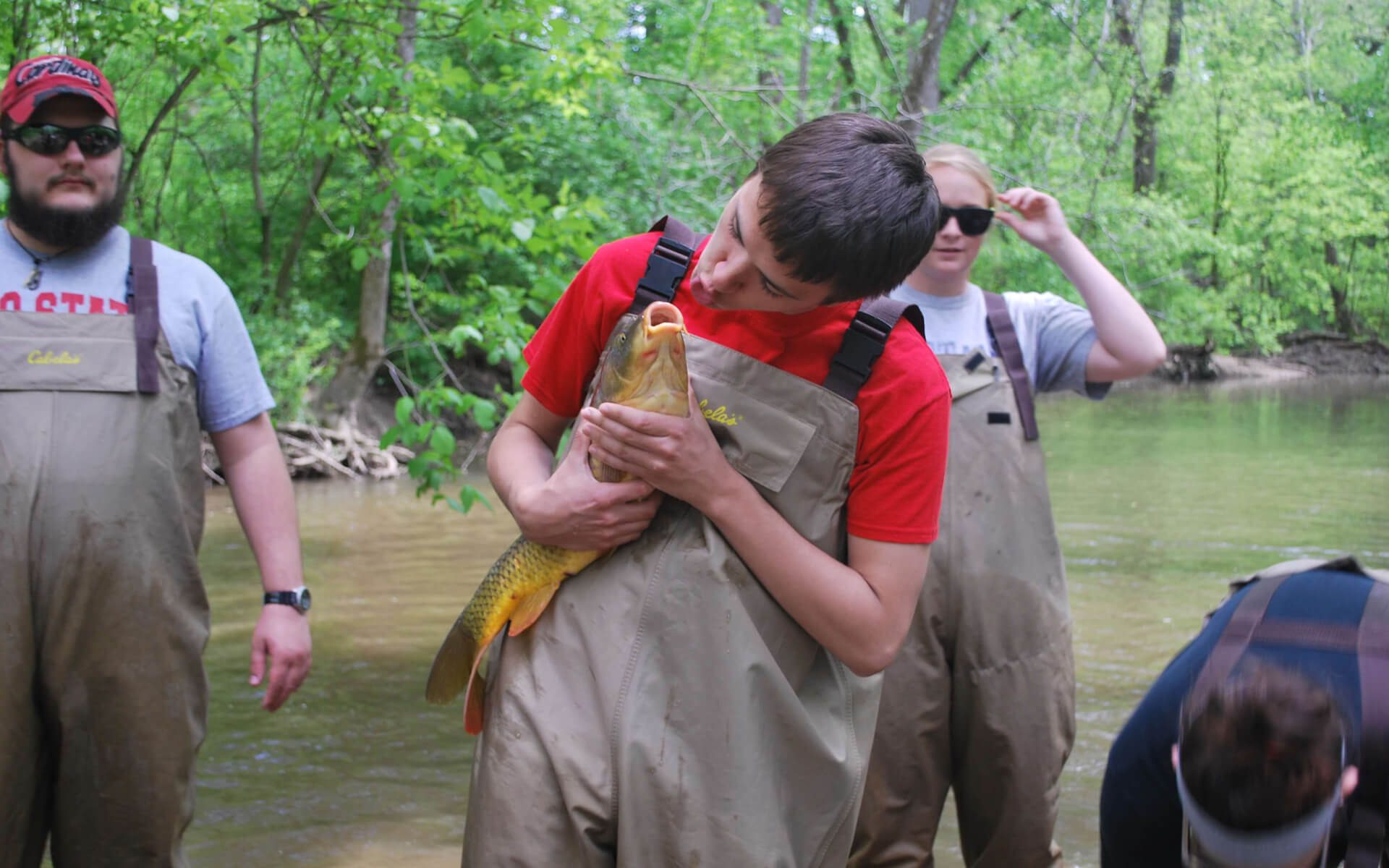
Marine Science – and Freshwater too!
The diversity of aquatic life is breathtaking, and our students explore the science of aquatic life with courses in marine science, coral reef ecology, freshwater ecology and conservation biology. We also have tanks with corals, fish, and lots of invertebrates and have labs in local streams and ponds. What better way to learn about life in the water than to study and interact directly with it.
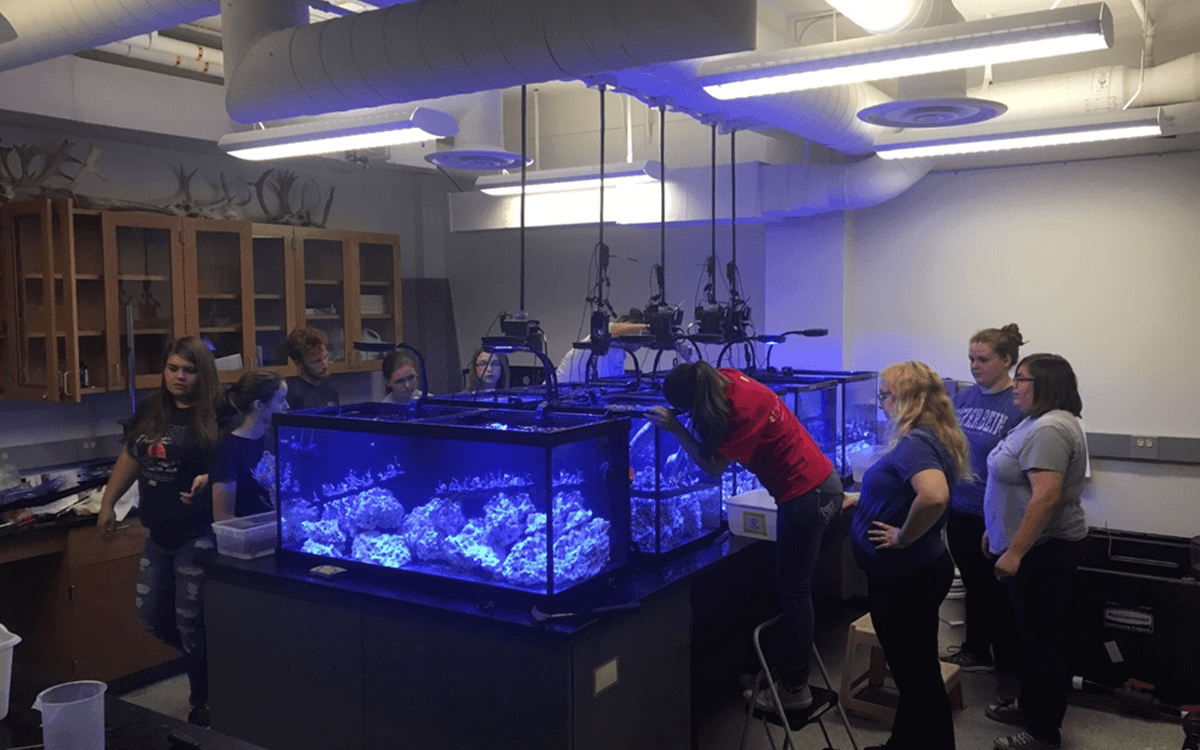
Water Quality
Healthy streams and aquariums require proper water quality and Otterbein’s practicum classes teach students the necessary skills to maintain appropriate water chemistry. As part of the practicum, students will also have a chance to earn a level-one certification in Water Quality from Aquatic Animal Life Support Operators (AALSO).
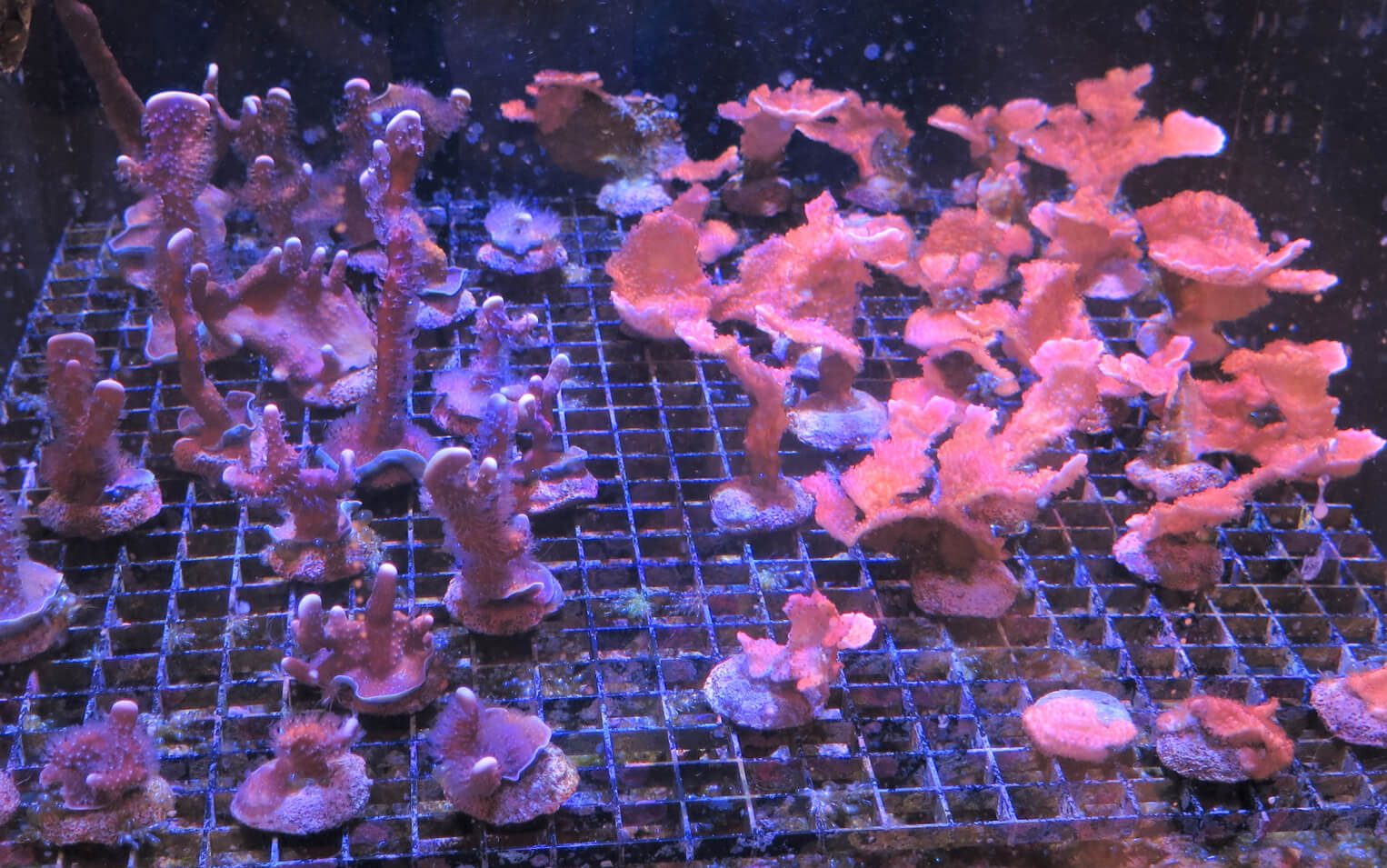
Life Support
To aquarists, “life support” is the filters, pumps, pipes, and protein skimmers that keep aquatic life alive. This is needed in reef tanks, freshwater aquariums, and the enclosures for many other zoo animals such as polar bears and penguins. Otterbein’s aquarium lab provides the opportunity for our students to learn aquarium hardware systems as they work toward a professional certification in Life Support.
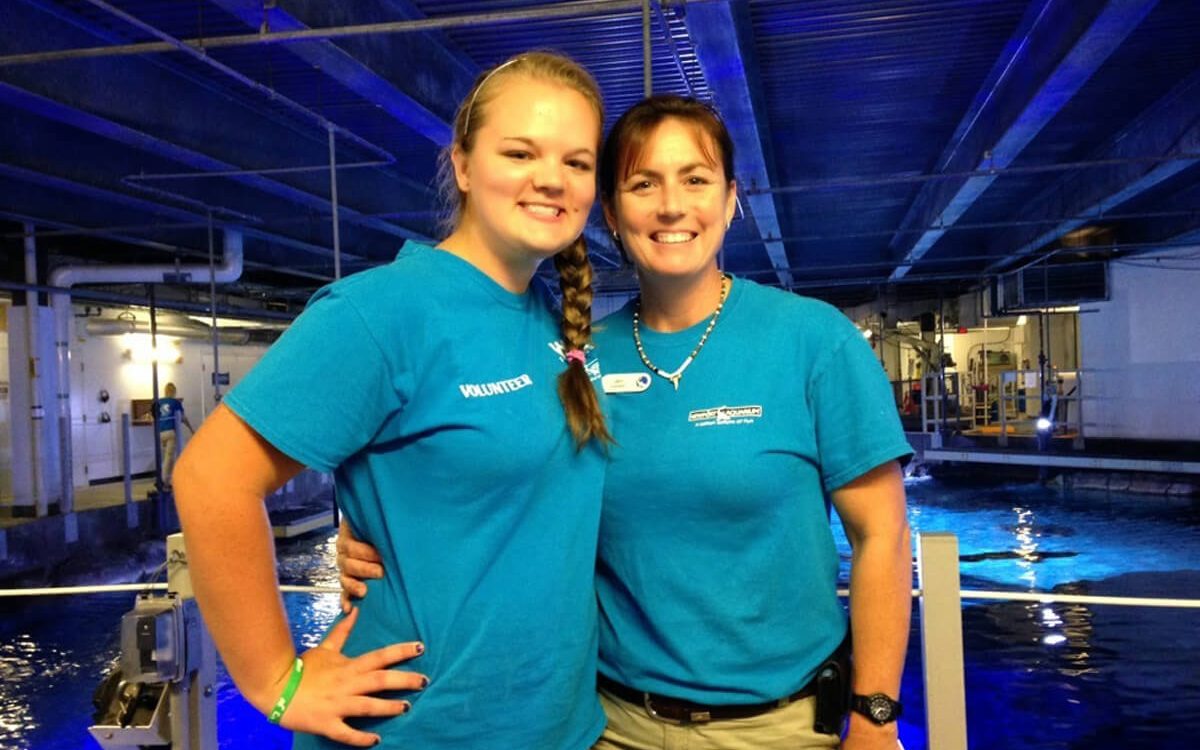
Aquariums, Internships, and Institutions
Otterbein students build the skills to work professionally in zoos and aquariums through classes, research, and internships. Most students in the Zoo and Conservation Science Major complete internships including many at the Columbus Zoo and Aquarium during the school year and summer internships elsewhere. Otterbein students have interned around the nation and the world including working with pandas in China, parrots and sharks in South Africa, and corals and reefs in Florida.
Detailed Curriculum Information
Get Involved!
Students of all levels of experience work in the lab, and you are invited to join the aquarium crew! There are several paid positions for juniors and seniors who serve as lab supervisors and ensure water chemistry and life support systems are properly maintained. Other students volunteer to work with the tanks, cleaning away algae, fragging corals, and perhaps most fun, feeding anemones and fish. This is a great way for students to get involved from day one at Otterbein. Contact Dr. Lescinsky (HLescinsky@otterbein.edu) if you want to join the aquarium crew. As an added bonus, all active crew members can have a “fish” with their name on it swimming on the wall.
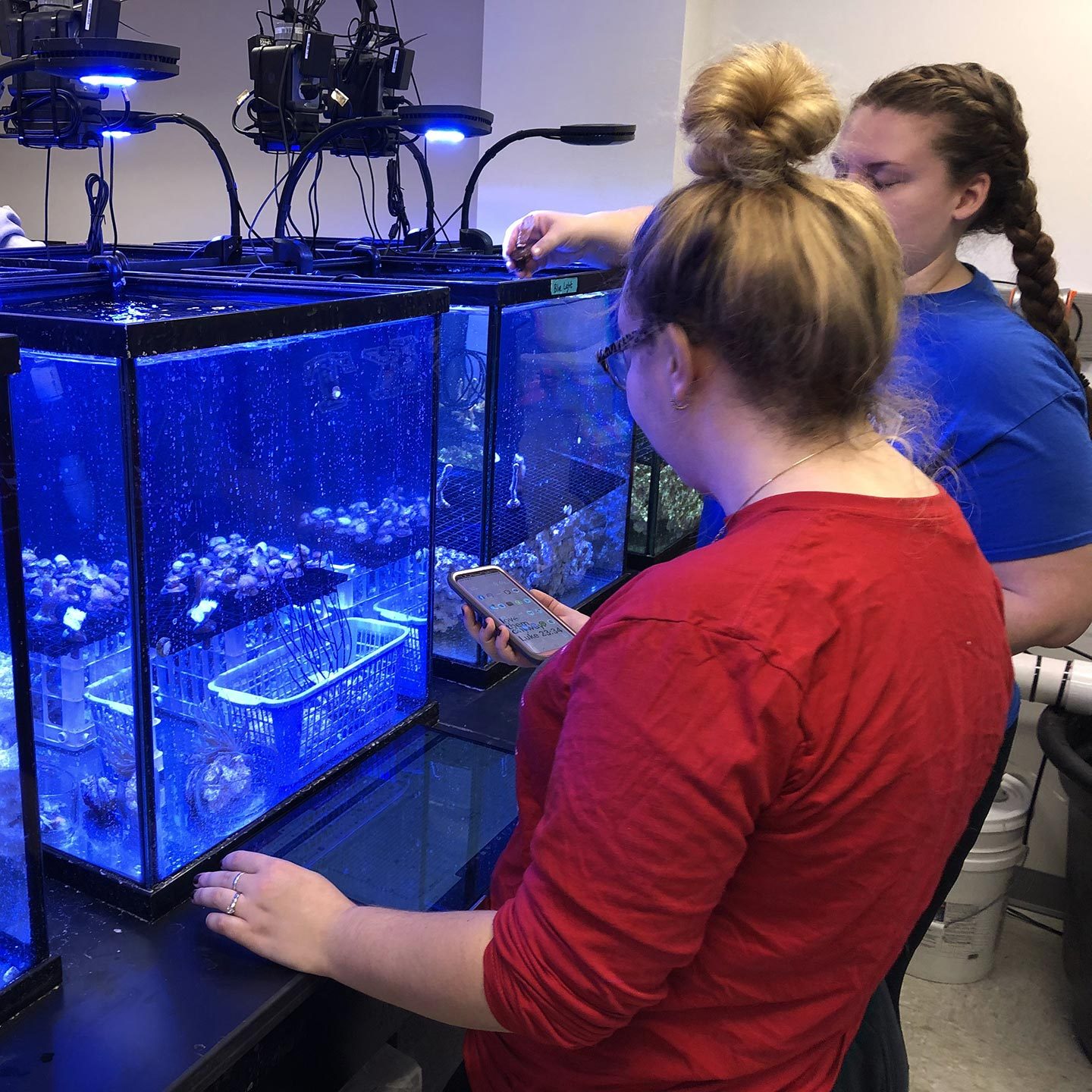 Students in our Aquarium lab work to examine and propagate corals.
Students in our Aquarium lab work to examine and propagate corals.
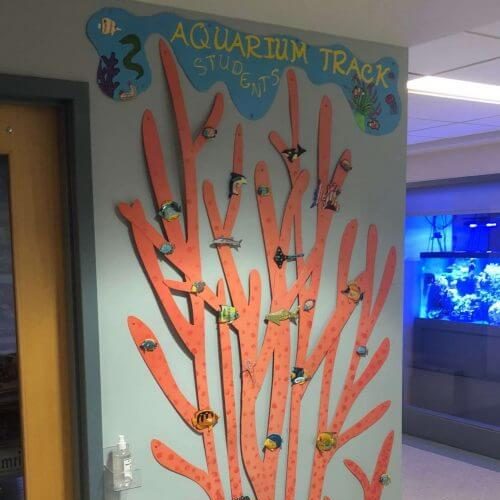 Each fish swimming on the Aquarium coral is a student involved with Aquariums at Otterbein.
Each fish swimming on the Aquarium coral is a student involved with Aquariums at Otterbein.
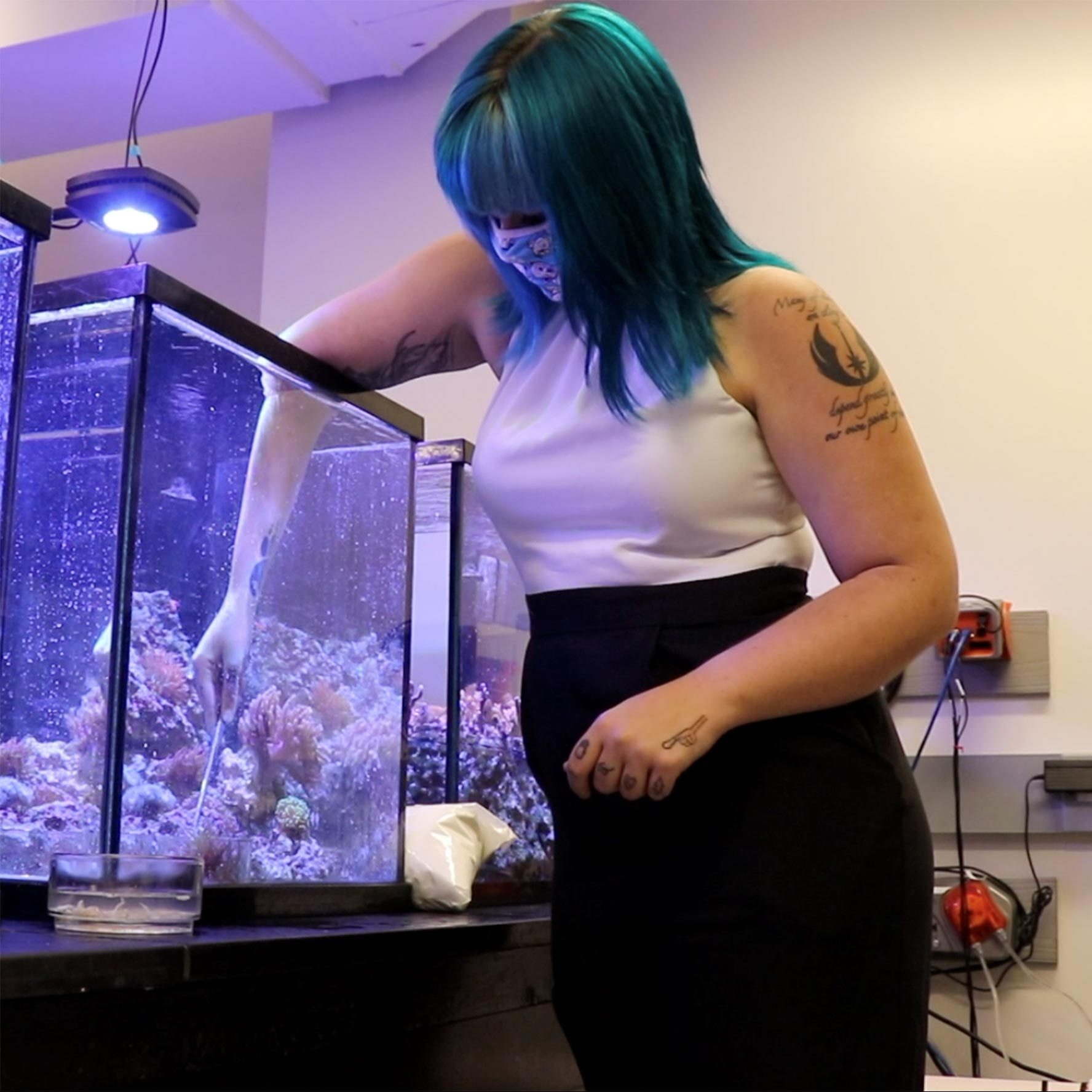 Carly Lech ‘23 feeds the anemones in the tank she spearheads.
Carly Lech ‘23 feeds the anemones in the tank she spearheads.
Find out more about Otterbein’s Aquarium Science Program
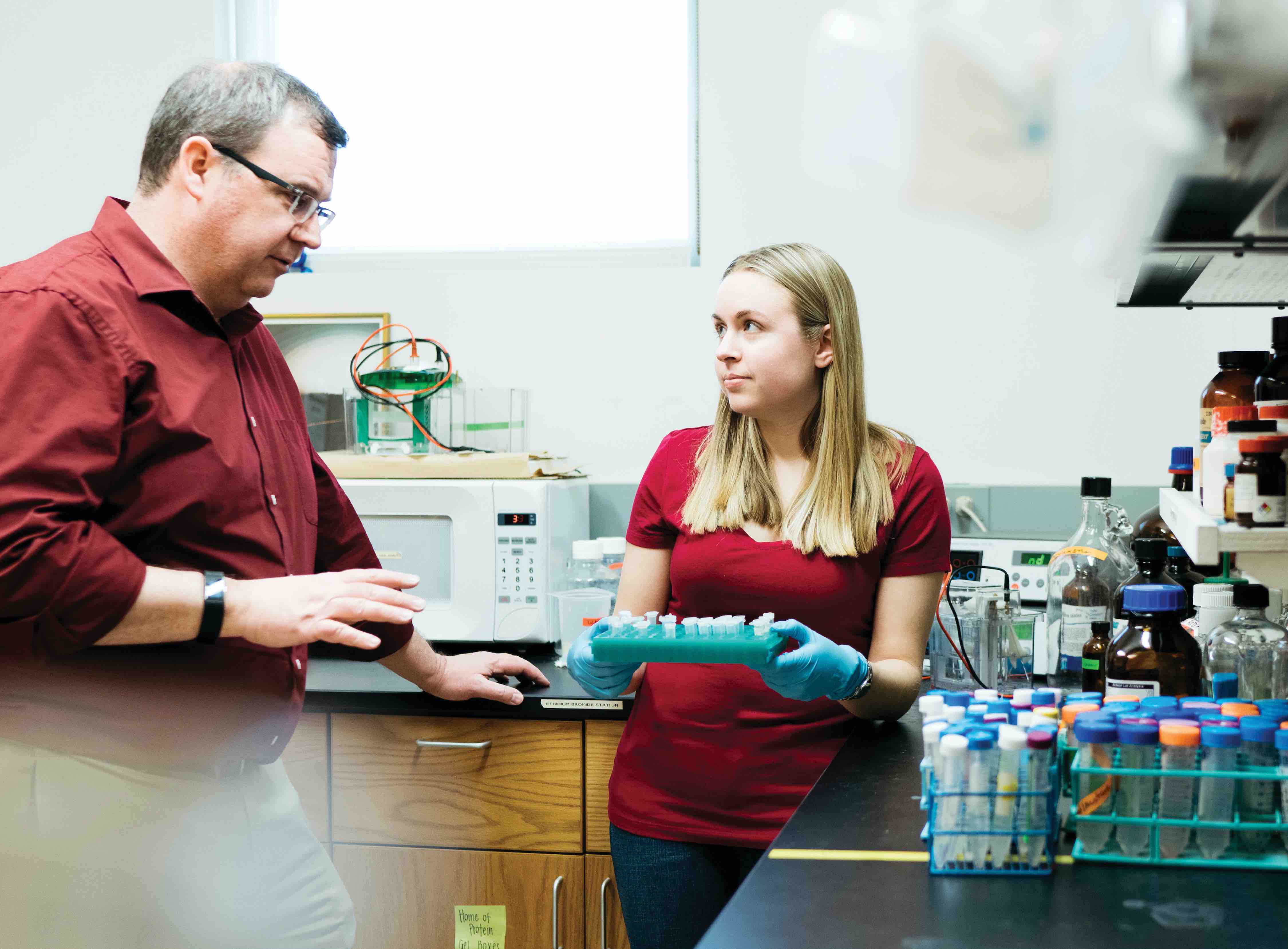
WE ARE developing a new generation of STEM scholars.
Otterbein collaborates with two organizations to offer the Aquarium Science Program.
The Columbus Zoo and Aquarium
The Columbus Zoo and Aquarium is within easy driving distance of Otterbein and its aquarium facilities include Discovery Reef, Manatee Coast, Polar Frontier, and the sea lion habitat at the Zoo’s new Adventure Cove region. Students will learn about these and other zoo facilities during Introduction to Zoo and Conservation Science, taken during the spring of the first year. Later, Aquarium students will examine the facilities in more detail in the Aquarium practicums and internships.
Reef Systems Coral Farm
Reef Systems Coral Farm provides students with a window into another important part of the Aquarium Industry. This nearby farm caters to enthusiastic hobbyists and is a pioneer in farming coral sustainably in greenhouses, even in the middle of Ohio. Collaborations here provide lots of hands-on experience in water quality, life support, and coral ecology. Reef Systems Coral Farm propagates many soft and hard coral species for hobbyist reef tanks.
Apply
Now!
